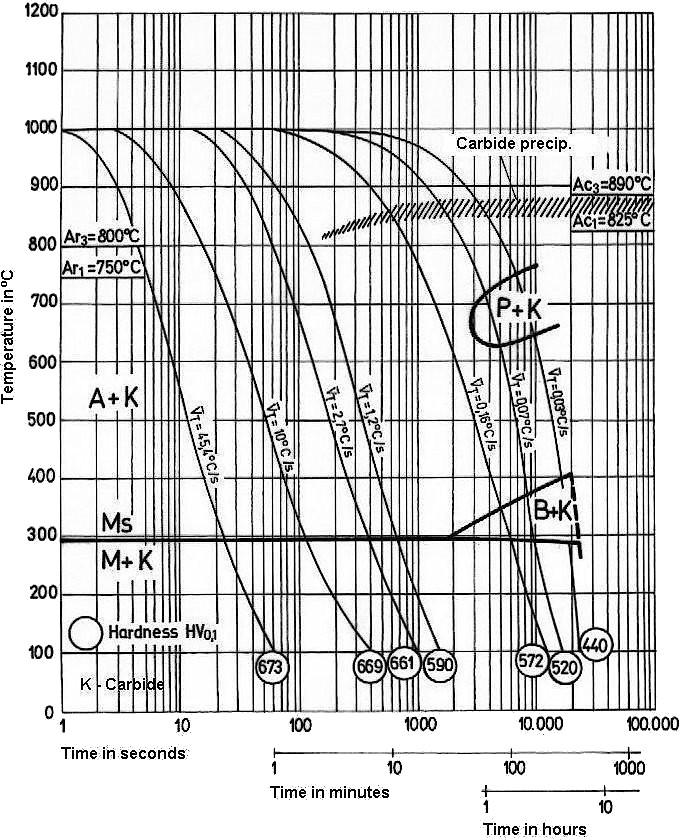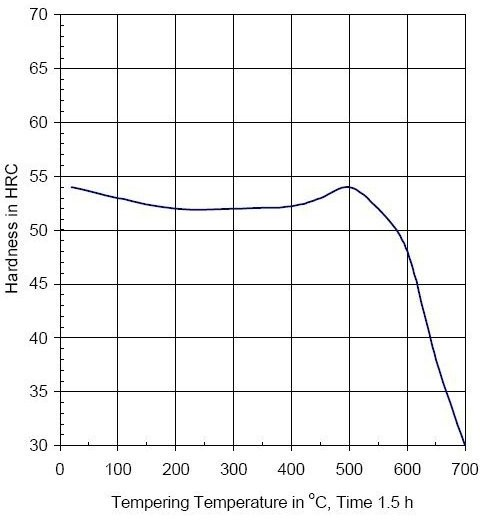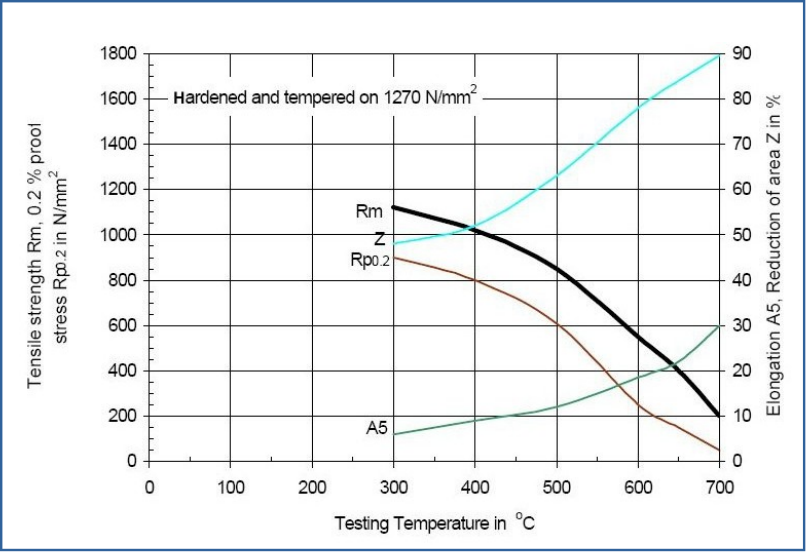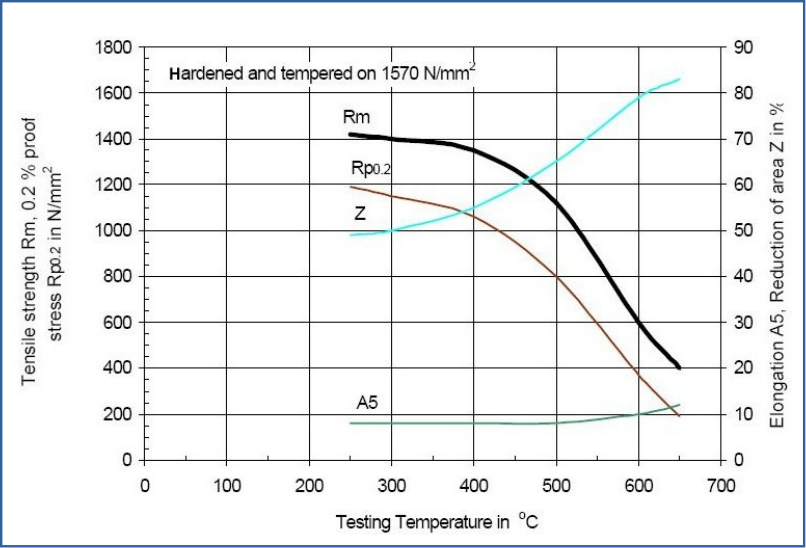
SITHERM 2343 Steel
Designation by Standards
Brand Name | Ravne | Mat. No. | DIN | EN | AISI/SAE |
SITHERM 2343 | UTOPMO1 | 1.2343 | X38CrMoV5-1 † | X37CrMoV5-1 | H11 |
Chemical Composition (in weight %)
C | Si | Mn | Cr | Mo | Ni | V | W | Others |
0.37 | 1.0 | 0.38 | 5.15 | 1.30 | - | 0.40 | - | - |
Description
H11 is one of the Hot Work, Chromium type tool steels. It is relatively low in carbon content and has good toughness and deep hardens by air quench from heat treatment. Good combination of toughness, hardness and wear resistance in hot. Resistance to softening and to cracking.
Applications
H11 is often used for highly stressed structural parts such as aircraft landing gear. It resists softening at temperatures up to 537oC while retaining good ductility and toughness even at strength levels on the order of 275 ksi. Tools for hot forging of light metal. Pressure die casting tools. Dies, mandrels, punchers, knives, moulds. This grade can be water cooled. For most highest requirements we recommended UTOPMO1 EFS.
Physical properties (average values) at ambient temperature
Modulus of elasticity [103 x N/mm2]: 215, 176 (at 500oC), 165 (at 600oC)
Density [g/cm3]: 7.80, 7.64 (at 500oC), 7.60 (at 600oC)
Thermal conductivity [W/m.K]: 25, 28.5 (at 500oC), 29.3 (at 600oC) Electric resistivity [Ohm mm2/m]: 0.52, 0.86 (at 500oC), 0.96 (at 600oC) Specific heat capacity[J/g.K]: 0.46, 0.55 (at 500oC), 0.59 (at 600oC)
Coefficient of Linear Thermal Expansion 10-6 oC-1
20-100oC | 20-200oC | 20-300oC | 20-400oC | 20-500oC | 20-600oC | 20-700oC | 20-700oC |
9.8 | 12.5 | 13.0 | 13.2 | 13.5 | 13.7 | 13.8 | 14.0 |
Continuous Cooling Transformation (CCT) Diagram

Soft Annealing
Heat to 800-840oC, cool slowly in furnace. This will produce a maximum Brinell hardness of 229.
Stress Relieving
Stress relieving to remove machining stresses should be carried out by heating to 650oC, holding for one hour at heat, followed by air cooling. This operation is performed to reduce distortion during heat treatment.
Hardening
Harden from a temperature of 1000-1040oC followed by air, oil quenching or warm bath quenching 500-550oC. Hardness after quenching is 50-56 HRC.
Tempering
Tempering temperature: See the data bellow.
Tempering Temperature (oC) vs. Hardness (HRC)
100oC | 200oC | 300oC | 400oC | 500oC | 550oC | 600oC | 650oC | 700oC |
53 | 52 | 52 | 52 | 54 | 52 | 48 | 38 | 30 |
1845 | 1790 | 1790 | 1790 | 1910 | 1790 | 1570 | 1200 | 970 |
Tempering Diagram

Diagram Tempering Temperature - Mechanical Properties

Diagram Tempering Temperature - Mechanical Properties

Forging
Hot forming temperature: 1100-900oC.
Cold Working
Cold working may readily be accomplished on H11 by conventional methods.
Machinability
Machinability is reasonably good, approximately 75% that of the W group water hardening low alloy tool steels.
Corrosion Resistance
This is a steel alloy and not corrosion resistant. It will rust unless protected.
Welding
H11 is a readily weldable alloy by conventional methods.
Forms manufactured: Please see the Dimensional Sales Program.
Disclaimer
The information and data presented herein are typical or average values and are not a guarantee of maximum or minimum values. Applications specifically suggested for material described herein are made solely for the purpose of illustration to enable the reader to make his own evaluation and are not intended as warranties, either express or implied, of fitness for these or other purposes. There is no representation that the recipient of this literature will receive updated editions as the become available.
Unless otherwise specified, registered trademarks are property of SIJ Metal Ravne company. Copyright 2016 by SIJ Metal Ravne d.o.o. All rights reserved. Contact our Sales Office for more information.